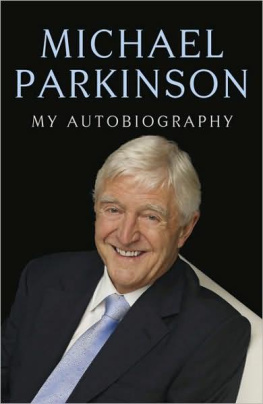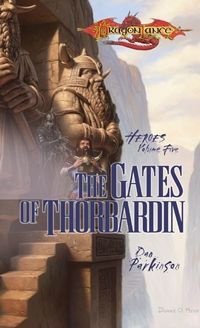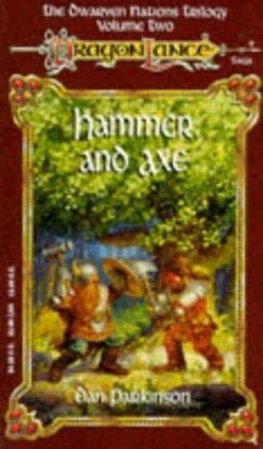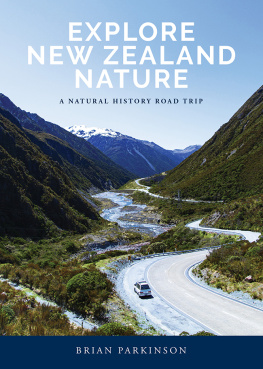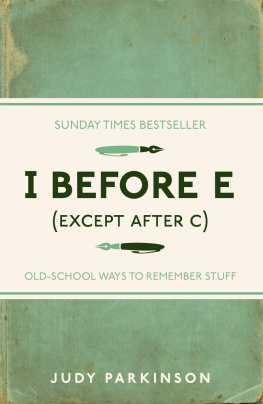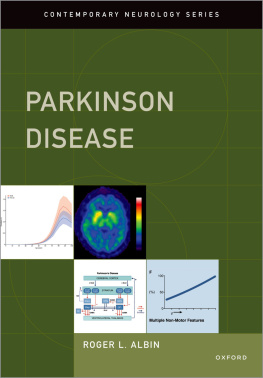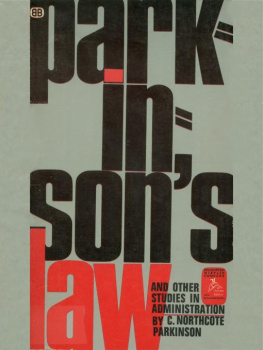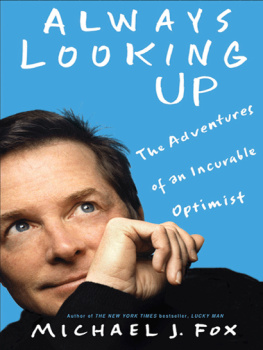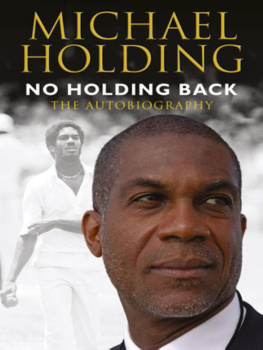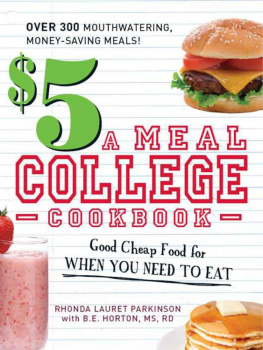PARKY
MY AUTOBIOGRAPHY
Michael Parkinson
HODDER & STOUGHTON
Copyright Michael Parkinson 2008
The right of Michael Parkinson to be identified as the Author of the Work has been asserted by him in accordance with the Copyright, Designs and Patents Act 1988.
All rights reserved.
No part of this publication may be reproduced, stored in a retrieval system, or transmitted, in any form or by any means without the prior written permission of the publisher, nor be otherwise circulated in any form of binding or cover other than that in which it is published and without a similar condition being imposed on the subsequent purchaser.
A CIP catalogue record for this title is available from the British Library
Epub ISBN 978 1 84456 900 7
Hardback ISBN 978 0 340 96166 7
Trade paperback ISBN 978 0 340 97680 7
Hodder & Stoughton Ltd
338 Euston Road
London NW1 3BH
www.hodder.co.uk
This book celebrates
the memory of my parents, the love of Mary,
the blessing of our sons Andrew, Nicholas and Michael
and the joy of our grandchildren, Emma, Georgina and Ben;
Laura and James; Honey, Felix and Sophia.
CONTENTS
ACKNOWLEDGEMENTS
My special thanks to Erin Reimer and my son Michael for their dedicated research and intelligent prompting; to Teresa Rudge for her patience and skill in making sense of an untidy manuscript; to Andrew Bullock for his enthusiastic support; and to my former PA Autumn Phillips for causing a much-needed break from writing with a royal wedding! Also to my son Nicholas for finding me a typewriter (and some ribbons) in America thereby frustrating my last feeble excuse for not writing the book; and to Mo, Michael, Dom and the rest of the staff at the Royal Oak in Paley Street for the marvellous sustenance. Finally, warm thanks to Roddy Bloomfield, my editor at Hodder & Stoughton, who has nursed the book through decades of uncertainty.
Then there are the stalwarts who worked hard on the Parkinson show but didnt get a mention in the narrative simply because there wasnt the space. They are Graham Lindsay, Gill Stribling-Wright, Christina Baker and Lynda Wood and, in particular, Quentin Mann who, as floor manager, guided me through near on 600 shows and never let me down.
I would also like to thank friends and colleagues who were interviewed for the book and gave so generously of their time: Anthony Howard, Harry Whewell, Michael Frayn, Barrie Heads, Brian Armstrong, Chris Menges, Johnnie Hamp, Leslie Woodhead, Sir Paul Fox, the late Sir Bill Cotton, Cecil Korer, Eve Lucas, Jill Drewett, John Fisher, Kate Greer, Patricia Houlihan, Roger Ordish, Chris Greenwood, Colin McLennan, David Lyle, David Mitchell, Greg Coote, Bea Ballard, George Morton, Jim Moir, Anthony Cherry, Sir David Frost, Steven Lappin and Robin Esser.
Other helpful people and organisations were: Jeff Walden/BBC Written Archives Centre, Stuart Craig/Bishop Simeon Trust, Simon Hoggart, Jarvis Astaire, Mirrorpix, News International Archives, The Guardian Newsroom Archive Centre, Parliamentary Archives, The London Library, ITN Source, BBC Motion Gallery, Desert Island Discs, ITV Press Office, Cutting it Fine, ABC Library/Australia, National Film and Sound Archives/Australia and the Daily Telegraph.
And, finally, looking back at what I have written I am aware I have failed to mention lifelong friends including Carol and Marshall Bellow, of Leeds, and Athol and Jean Carr, who live in Rotherham, whose friendship and loyal support over the years has been a treasured gift to all our family.
PREFACE THE CHOICE
Every morning, when I woke, I could see the pit from my bedroom window. When you couldnt see it you could smell it, an invisible sulphurous presence. It was where my dad worked, where my granddad worked and his dad before him. It was where I expected to end up. I remember thinking it wouldnt bother me, providing I could marry Ingrid Bergman and get a house much nearer the pit gates. Shortly after Vesting Day, when Attlees government nationalised the mines, we were taken from Barnsley Grammar School to visit a colliery. When I arrived home my father asked me where we had been. I told him. He said, Thats not a pit, its a holiday camp.
He told me to be ready, 4 a.m. the following Sunday, and he would show me what a real coal mine was like. He took me down Grimethorpe Colliery and tipped the wink to his mate on the winding gear that there was a tourist on board. We dropped like a man without a parachute. Big laugh. The rest wasnt so funny. He took me where men worked on their knees getting coal, showed me the lamp he used to test for methane gas, explained how dangerous it was. He showed me the pit ponies. The only time I had seen them before was when they had their annual holiday from their work underground and emerged from the dark, their eyes bandaged against the light.
We stood in front of a seam of coal, black and shiny. Lets see if youd make a miner, he said. He gave me a pick and nodded at the seam. The harder I hit the coal, the more the pick bounced off the surface. Find the fault, he said, running his fingers across the coal face. He tapped it and a chunk fell out, glittering in his lamplight. We walked back and he said nothing until we reached the pit gates. What do you reckon? he said.
You wont get me down there for a hundred quid a shift, I said.
He nodded and smiled. Thats good, he said, but be warned that if ever you change your mind and I see you coming through those gates Ill kick your arse all the way home.
This is a story of a child who did as he was told.
PIT VILLAGE
My father used to love coming to the show, although he was never quite sure that what I was doing was a proper job. He wanted me to be a professional cricketer. Just before he died he said to me: Youve had a good life, lad. I said I had. Youve met some fascinating people and become quite famous yourself, he said. I nodded. What is more, youve made a bob or two without breaking sweat, he said. I agreed. Well done, he said.But think on, its not like playing cricket for Yorkshire, is it? That may well be true, but once or twice it got pretty darned close.
From the script of the final Parkinson Show recorded at the London Studios, 6 December 2007
When I was born in 1935 my father wanted me called Melbourne Parkinson because we had just won a Test match there. My mother, a woman of great common sense, put her foot down. Her winning argument was that my father could have his way if she could pick a second name. He was agreeable until she told him that she wanted me called Gershwin after her favourite composer. They settled for Michael.
I was born on a council estate in Cudworth, a mining village in the South Yorkshire coalfield. In those days it was nicknamed Debtors Retreat and my dad told me the rent collectors walked around in pairs. He was a miner at Grimethorpe Colliery. Every day he would walk three miles to his place of work, spending eight hours underground getting coal. He was paid seven shillings a shift.
The year after I was born a dispute at the pit ended, as disputes did in those days, with a lockout. The management simply closed the pit gates until the miners, having learnt their lesson, went back to work. Fed up with the mining industry, seeking a less uncertain career, father borrowed a fiver from a relative and went to Oxford to get a job on the new Morris Motors car assembly line. The day after the interview, walking around Oxford waiting to see if he had been accepted, he felt a terrible longing for his native landscape, so he came home. A week later a letter arrived telling him the job was his if he wanted it.

